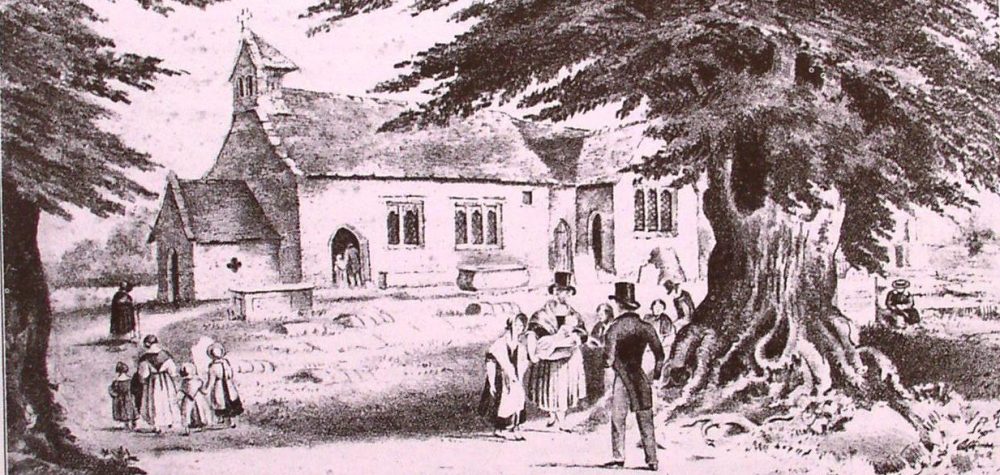12th December 1947
Goytrey Woman’s Suicide: A Sad Story
Afraid of having to enter a mental home Mrs Harriett Morris left her sleeping husband in the early morning, waked 300 yards from her home to the canal in her nightdress and threw herself from the bridge.
“Suicide whilst in a state of mental instability” was the verdict recorded at the inquest at Pontypool on Saturday by Mr D J treasure.
Mrs Morris 58, married woman with no children lived at Vine Tree Goytrey.
Dr J B Fitzsimons said he had been treating Mrs Morris for the past three years for nervous debility. When he saw her at home on December 1st she was depressed and hysterical. She told him that she was very ill – her nerves were bad – and that she was not going to get any better. He discussed various possibilities with her and she seemed to become pacified; she showed no suicidal tendencies. He then suggested she should go to Abergavenny Hospital as a voluntary patient and she replied that she should take a little time to consider it.
Mr Morris told him the following morning that his wife had not made up her mind. When the Doctor saw her on the following Wednesday she said she was willing to go to the institution. On Thursday we went to Griffithstown mortuary and saw her body. Death was due to drowning.
The Coroner: were you surprised? – “There was always that possibility.”
“Couldn’t Stand Living”
Edwin John Morris said that up to two years ago his wife had been quite normal. She showed signs of developing nervous trouble after nursing her mother, who died after a year’s illness during which she was bedridden. Last summer her health seemed to improve but in the winter she again became depressed. She told him she could not carry on and that “she had to go as she couldn’t stand living any longer.” She had never tried to harm herself.
On the night before the tragedy she became very strange and would not speak. When the doctor called he told Mr Morris that she should go into a mental home as there was nothing more that he could do. His wife overheard the conversation and she refused to go. The next day said Mr Morris he intended to arrange for her to go but he did not mention the subject to her again and they went to bed.
“She Has Done It”
In the morning he found his wife was not in bed. After looking for her in vain in the house he went towards the canal. His niece went ahead to look for Mrs Morris. A few minutes later she returned to say, “She has done it; she is in the canal.” He saw her in the canal near Parc-y-brain Bridge, on the Pontypool side. She was in her nightdress. People were getting her out.
Mr Morris in reply to the Coroner attributed the tragedy to his wife’s nerves. She had to give her mother constant attention during her illness and was unable to get help.
The Coroner: it was enough to break down the strongest constitution.
Miss (should be Mrs) Esmeralda May Lewis of the Castle Goytrey said she reached the canal in time to see Cliff James trying to bring her aunt to the bank.
Lying Near Bank
Ivor Jenkin, The Knoll, Goytrey, said he was driving his van along the road leading to the Goytrey Arms when Miss Lewis said “auntie has done it; she is in the canal.” He ran to the canal and saw the body, which was lying in shallow water three feet from the bank. He helped James and Arthur Howells to get to the bank; she was already dead.
P.C. Kenneth Jenkins Little Mill told the Coroner that Mrs Morris might have reached the canal from her house by walking across fields or along the grass verge of the road. It was unlikely that she had walked along the road itself, as it had a flinty surface and no marks were found on the soles of her feet. The canal bridge was about 200 to 300 yards from her house.
Jumped From Bridge
The constable said he formed the opinion from the position of the body that Mrs Morris jumped ten feet from the hump-backed bridge into the canal.
The Coroner said he was satisfied that Mrs Morris was not in a normal state. If her husband had been able to get her to agree to go to a mental institution she might have recovered. The fear of what was going to happen to her caused her to commit suicide. She did that rather than become an inmate of a mental institution.
The funeral on Sunday at Goytrey Church was conducted by Canon L.G. Morgan, rector, Mr C. Meyrick presiding at the organ. Mrs Morris was a member of the Church for many years.
(Harriett Morris is my great aunt.)
